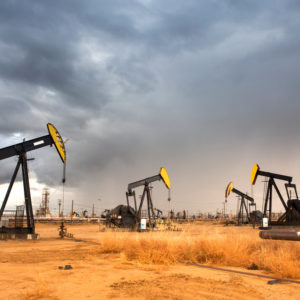
Crédit Agricole announces new, ground-breaking no-coal policy
Paris, 13th June 2019 - Crédit Agricole has just announced a new climate strategy that includes, among other things, a completely new approach on coal.
Not only is the bank stopping all financial services to companies expanding their activity in the coal sector but the bank also commits to fully phasing out coal assets from its financing and investment portfolio.
The policy announced today comes after years of campaigning by Friends of the Earth France, which has been pointing out the limits of the policies adopted by French banks on the coal sector. Lucie Pinson, Friends of the Earth France spokesperson, says :
“Crédit Agricole’s freshly minted no-coal policy is a game changer. For the first time, a major financial institution has acknowledged the urgent challenge we have in not only preventing the expansion of the coal sector, but planning and implementing its phase out by Paris-compliant deadlines. Crédit Agricole has set what is now industry best practices and benchmarks that need to be met or beaten by other players – starting with BNP Paribas”.
Crédit Agricole bases its coal exit plan on climate science which says that coal needs to be phased out by 2030 in European and OECD countries, by 2040 in China and by 2050 elsewhere to limit global warming to below a 1.5C. To get there, Crédit Agricole requires all companies to adopt by 2021 a detailed plan to close and not sell their coal assets by these deadlines.
To give some perspective and fully understand what it means, Crédit Agricole is one of the largest commercial banks and asset managers worldwide with €1.8 trillion of assets under management.
Clearly, Crédit Agricole has set what is now industry best practices for the coal industry. These benchmarks have now to be met or beaten by other players. In Europe, all eyes are looking at BNP Paribas but also Barclays, Santander and Unicredit that keep pouring billions of euros into the destructive coal industry (source : Europe Beyond Coal, Fool’s Gold, 2019).
Credit Agricole has shown leadership today but the next step for the bank to respond effectively to the climate emergency must be to show the same ambition for other fossil fuel, to stop all support to the expansion of the oil and gas industry and start phasing them out now.
Contact :
Lucie Pinson, Friends of the Earth France’s spokesperson +33 6 79 54 37 15
Read more about the policy in the report published by Friends of the Earth France “Phasing out coal, Crédit Agricole leads by example, other financial institutions lag behind »
In details :
- Credit Agricole will fully phase out coal from its financing and investment portfolio by 2030 in EU / OECD countries, 2040 in China and 2050 elsewhere. These dates are based on Climate Analytics’s 1.5DegC scenario. However, analysis by the IEA says that all coal needs to be phased out by 2040.
- Credit Agricole requires all companies to have, by 2021, a detailed plan to close (and not sell) each of their coal assets by the aforementioned deadlines. If the demand is not met, supports will be reduced and the companies will be put on a watch list before being fully excluded if no change is met. Crédit Agricole is not the first bank or financial institution to commit to gradually exit the coal sector (some financial institutions have even more ambitious deadlines) but it’s the first one requiring companies to adopt such a plan.
- Credit Agricole also ends all supports to companies expanding or planning to expand their activities in the coal sector, from coal extraction to coal power production, including coal trading and transport. Crédit Agricole is the first global financial institution to make such a decision. Until now, only investors were excluding some power companies because of their plans to build new coal plants (so only coal power) and no financial institution had applied this commitment to their financing or insurance activities (eg. Allianz, AXA, BNP Paribas, Generali that all divested from some or all coal plant developers but keep financing or insuring them).
- Credit Agricole will also exclude new clients with more than 25% activity in the coal sector, and will only support existing clients above this threshold with dedicated project financing to non-coal projects
- The policy is applied to all the group activities and is covering all assets under management, including third party assets and assets passively managed.
- While the bank is announcing it will rate companies based on ESG issues and will systematically integrating their ratings to their financial ratings, as well as committing to align its support to fossil fuel to the Paris Agreement climate targets, no strict and clear measure has been announced on oil and gas. NGOs are calling the bank to show the same level of ambition and work on restricting policies for these sectors in order to stop fueling their expansion and supporting their exit.
- Several other measures are announced on increasing financing and investments into renewables, integrating climate change issues at all the levels of the group, etc. The bank’s detailed announcement will be available in English in the coming days.
Read more about the policy in the report published by Friends of the Earth France “Phasing out coal, Crédit Agricole leads by example, other financial institutions lag behind »
Background
In November 2018, after the publication of two reports by Oxfam France on the gap between their support for renewable energies and fossil fuels and by Les Amis de la Terre Franceexposing their financing to coal-fired power plant developers, Bruno Le Maire called on financial actors to put an end to the most polluting activities. Other French banks have made some announcements on coal recently but none is matching those of Crédit Agricole and are far from responding to the climate crisis.
Other quotes :
Jiri Jerabek, Utilities and Finance Coordinator with Europe Beyond Coal says : “Crédit Agricole deserves praise for setting the standard that all financial institutions now have to rise to. The phrases ‘phase out plan’, ‘just transition’, and ‘close not sell’ will now rightly dominate coal finance discussions going forward, as the bank’s new coal policy requires companies to publish by 2021 detailed plans to close their coal assets, in order to maintain financial services. Companies such as the Czech utility ČEZ, which is ‘greenwashing’ its portfolio by selling coal power plants instead of closing them down, can get into financial problems if all banks stop accepting such climate hypocrisy.”
Alexandre Poidatz, in charge of financial sector regulation at Oxfam France says : « We expect the State to assume its responsibilities. It must lead other French banks to follow Crédit Agricole Group’s example on coal. If the other banks do not follow, we ask the government to seize the opportunity to submit a bill to ermark the flow of financial players towards the ecological transition.”
Lorette Philippot, Finance campaigner at Friends of the Earth France says : « While Crédit Agricole is now committed to aligning all its activities with a trajectory compatible with the Paris Agreement, we expect it to demonstrate the same requirements towards other fossil energy companies : stop their expansion and organise their exit from oil and gas as soon as possible to limit global warming to 1.5°C«
















